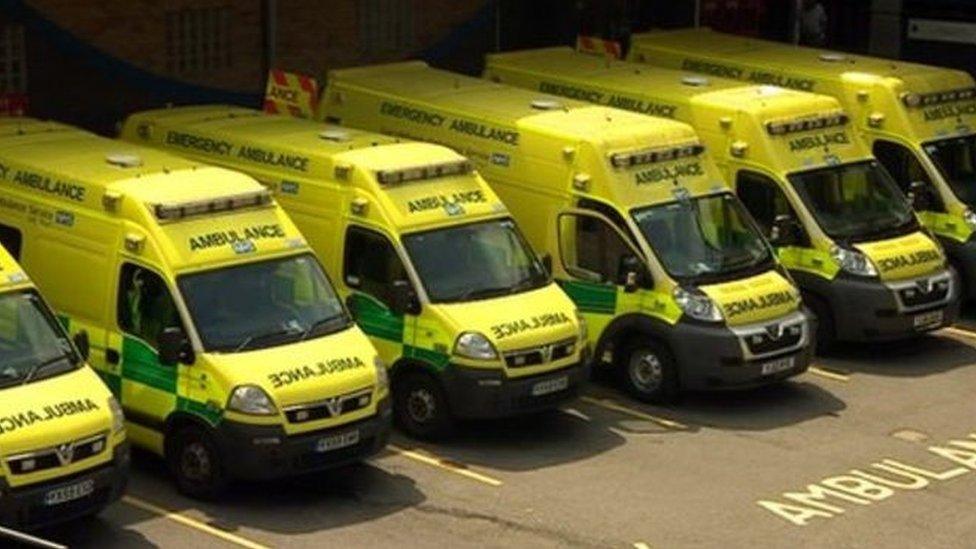Man died 'in agony' after stroke amid ambulance delays
- Published
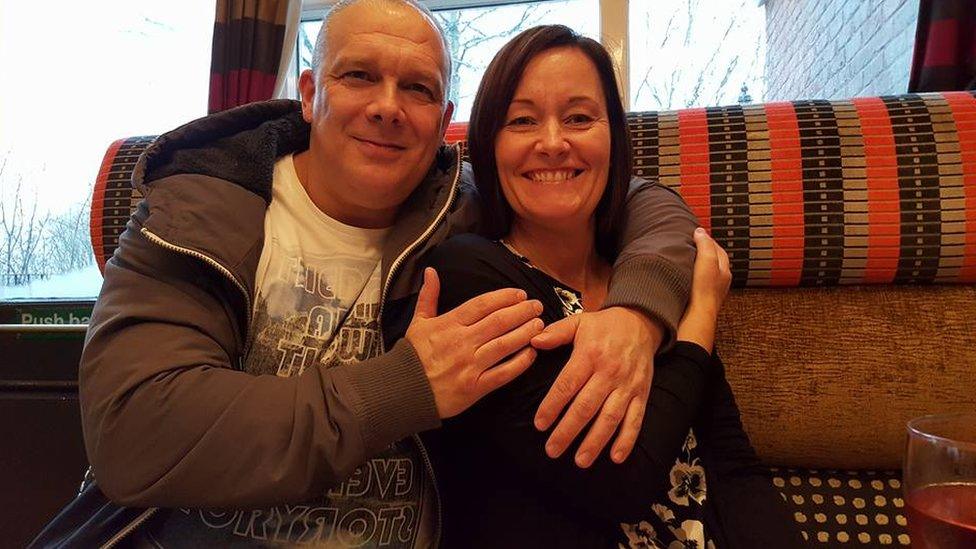
Michelle Lane said her husband, a G4S guard, had "a tough exterior but was really soft like a marshmallow inside"
A woman has described how her dying husband was left "in agony" from a stroke after she was told it would take up to an hour to get an ambulance.
Michelle Lane now has post-traumatic stress disorder and gets flashbacks of husband Tony screaming in pain as her nephew drove them to hospital instead.
Mr Lane, 54, died after eventually being transferred to a second hospital.
East Midlands Ambulance Service said it was "experiencing very large numbers of emergencies at that time".
It is now carrying out a trial in which patients who have suffered strokes are treated as a higher priority but this is unrelated to Mr Lane's death.
'They couldn't have saved him'
"All I wanted was an ambulance," said Mrs Lane, from Selston in Nottinghamshire.
"They couldn't have saved him but he wouldn't have died in absolute agony - and I watched my husband die in absolute agony.
"My nephew drove the car and I held my husband in my arms as he was repeatedly screaming 'pain, pain, head, pain'.
"I've been diagnosed with post-traumatic disorder because of it, because I can't get it out of my head."

How quickly should an ambulance have been sent?
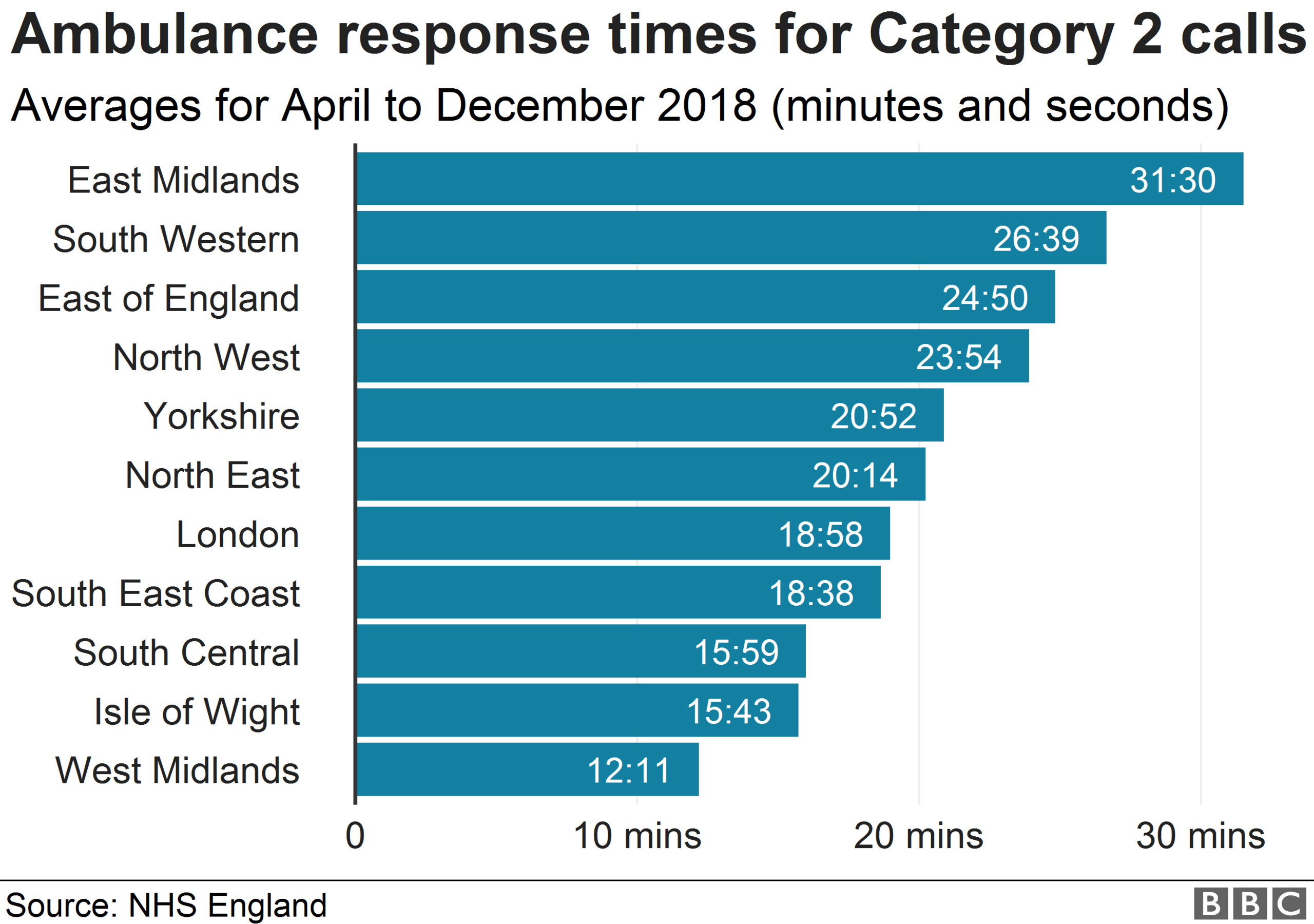
When 999 call handlers receive calls they filter them into one of four categories, external.
Category 1 is the most serious, for "calls from people with life-threatening illnesses or injuries". According to national standards, an ambulance should take an average of seven minutes to arrive for these calls.
Category 2 is for "emergency calls". An ambulance should take an average of 18 minutes to arrive for these calls.
Mrs Lane's call was initially classed as Category 1 because she said her husband was unconscious.
However, he regained consciousness during the call, which was therefore recategorised as Category 2.
By this point Mrs Lane had handed the phone over to a passing woman. As the ambulance service was busy, the call handler warned the passer-by that an ambulance would take up to 60 minutes.
East Midlands Ambulance Service said the 999 call had been audited and it had been confirmed the call was categorised correctly.
Strokes are categorised as Category 2 nationally, and the ambulance service said it had to follow national guidelines.
However, it is carrying out a trial where patients confirmed as having had strokes go to the top of Category 2.
Figures released by NHS England on Thursday showed East Midlands Ambulance Service took an average of 31 minutes and 30 seconds to respond to Category 2 calls between April and December 2018.
This was the longest average response time in England.

The couple were in a car park in Somercotes, Derbyshire, on 2 September when Mr Lane became ill.
Mrs Lane called 999 and told the operator: "I need an ambulance please, I think my husband had a stroke. He's been sick. He's wet himself, all his face has slumped."
After three minutes Mrs Lane handed the phone over to a passer-by because she was distressed.
Reading from a script, the call handler told the passer-by: "We are experiencing a very large number of life-threatening emergencies at the moment. However we do aim to be with you within the next 60 minutes or as soon as an ambulance is available and will be dispatched."
The woman who had taken over the call relayed this to Mrs Lane, who then decided to make her own way to King's Mill Hospital in Sutton-in-Ashfield, about eight miles away.
"It was horrendous," said Mrs Lane.
"His whole personality changed. He was growling like a wild animal. His eyes were rolled to the back of his head."
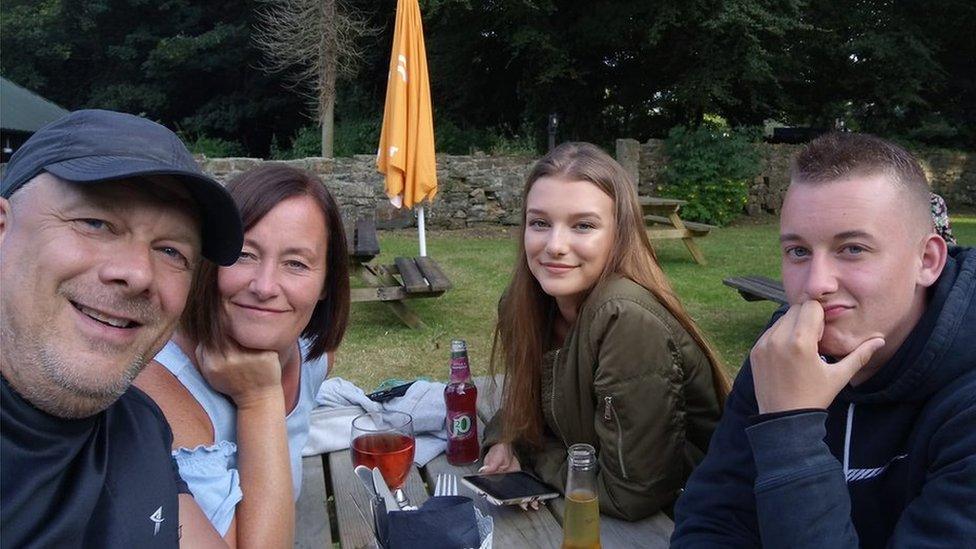
Michelle Lane said her husband was a "very loving husband and loving dad"
Mr Lane had a CT scan which showed his stroke had been caused by bleeding to his brain, caused in turn by a brain aneurysm.
He was then transferred to the Queen's Medical Centre in Nottingham, where he suffered a second bleed to the brain during an operation in the early hours of 3 September.
His life support machine was turned off later that day.
Ben Holdaway, director of operations at East Midlands Ambulance Service, said: "The call had been recorded as a potentially serious condition but we were experiencing very large numbers of emergencies at that time.
"The caller was informed we aimed to be with the family within 60 minutes, or as soon as the next ambulance was available to be dispatched to them.
"Representatives from EMAS have previously been in contact with Mrs Lane and have visited her at home to offer our sincere condolences and to talk about her concerns."

To discuss an East Midlands story, contact caroline.lowbridge@bbc.co.uk, external
- Published18 December 2018
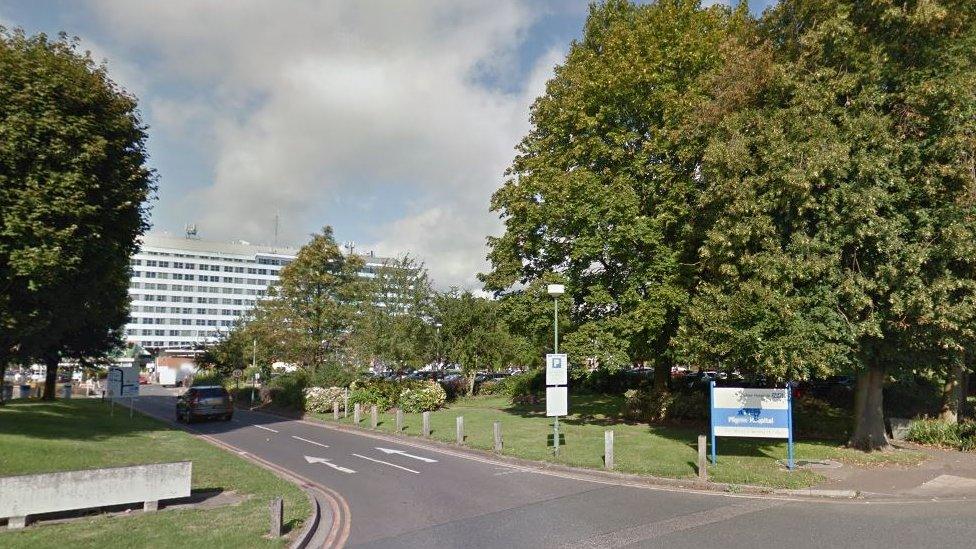
- Published24 November 2018
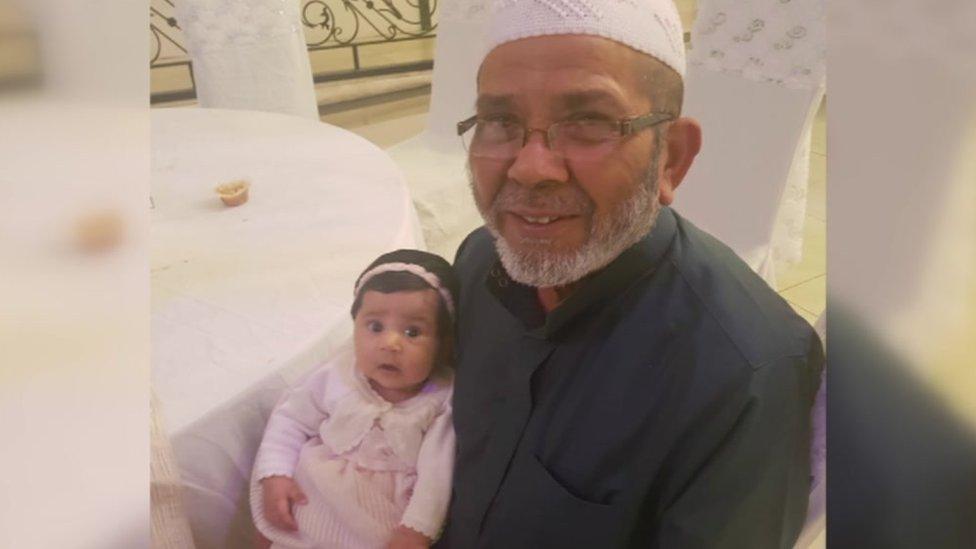
- Published23 August 2018
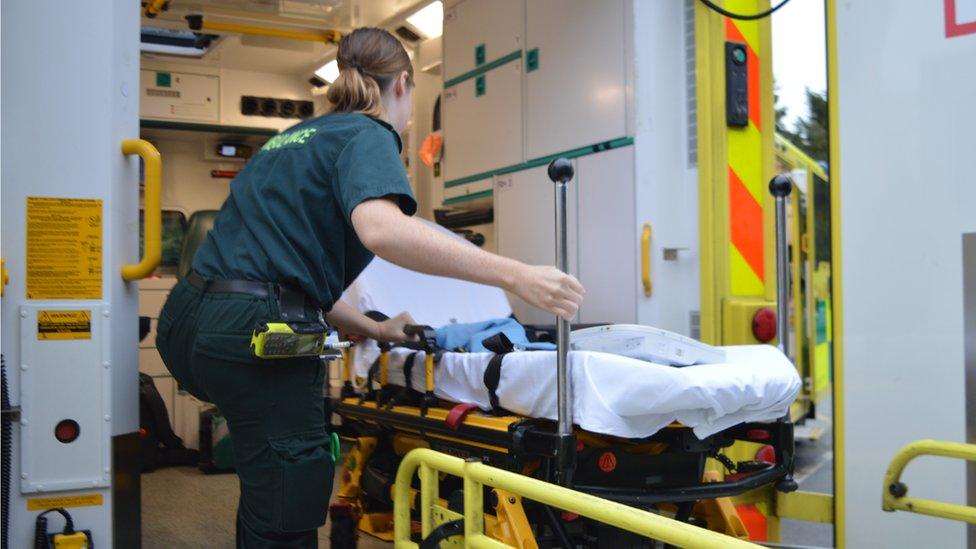
- Published17 May 2018
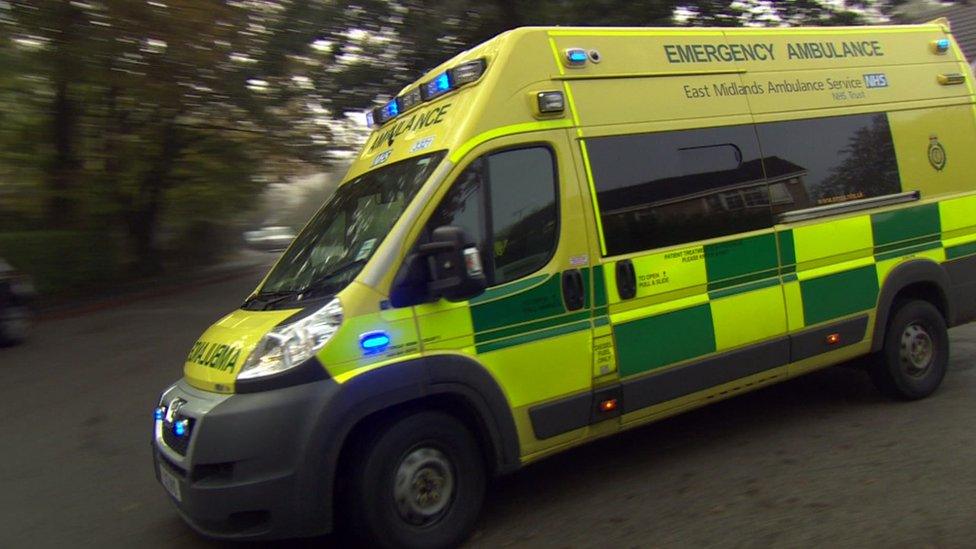
- Published1 May 2018

- Published10 May 2016
